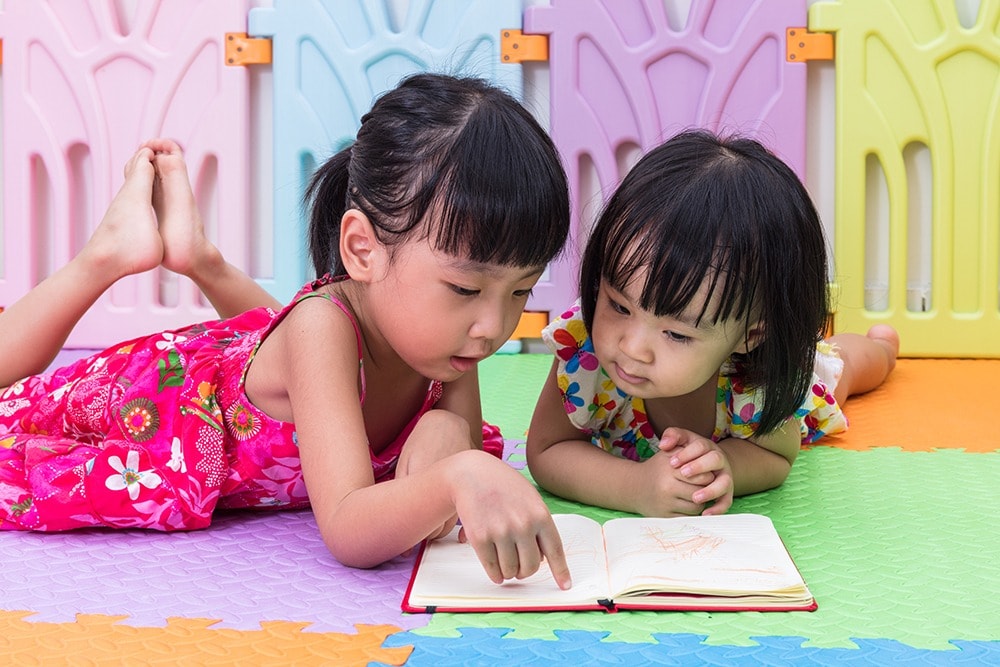Recently, CBBC held an “Excellence in Early Years Education” roundtable in Shanghai with representatives from UK nurseries, Chinese international-style nurseries, and Chinese investment groups. Ann Pan, International Schools Sector Lead, CBBC, and Robert Gymer discuss the outcomes
Differences between UK and Chinese Education
The discussion started with a general agreement that the UK and Chinese systems of education assessment are different: the existence of the Office for Standards in Education, Children’s Services and Skills (Ofsted) means the UK system is standardised to a greater degree than the Chinese one, while Chinese methods of assessment vary greatly between provinces, cities and municipal districts. However, DTD Kindergarten, a Chinese international-style nursery in attendance at the roundtable, mentioned that China’s Ministry of Education is looking to implement greater standardisation in its assessment of schools and nurseries.
DTD pointed out that early years education and the needs of young learners are similar across different countries. There seemed to be general agreement that regardless of country or background, schools can easily adapt their approach to successfully teach Chinese children.
Chinese investors expressed the need for UK early years education teaching materials and textbooks for nurseries. The UK nurseries, represented by Abberley Hall, Fennies and Lucton, responded that, while teaching materials exist for teachers to use in the UK, textbooks are not generally given to children at nursery level. However, delegates agreed that Chinese parents like to have something physical to look at and like to see a detailed curriculum or receive feedback on their child’s progress. UK nurseries reiterated that, while the curriculum is important, the appropriate training of staff and their interpretation of the curriculum is more important.
How to Prepare Students for a Smooth Transition to Primary School
Delegates continued to explore the differing approaches of the Chinese and UK systems. Abberley Hall, Fennies and Lucton suggested that in the UK, nurseries focus on preparing students emotionally and mentally for primary school, while Chinese nurseries are focused on academic results. UK nurseries are focused more on imparting basic learning skills to students, including problem-solving, listening, and thinking skills. In UK nurseries the process is geared towards preparing students for primary school, as opposed to in China, where children have a particular class to prepare them for primary school entrance exams.
Lucton said that as part of its strategy, the school often takes into account parents’ wishes regarding which primary school they want their child to attend, then tailors its curriculum to help the child better prepare for the relevant entrance exams. In this respect, it can also be very useful to establish good relations with local primary schools to act as feeder schools, namely a school that prepares students for entry to a particular education institution upon leaving.

UK nurseries focus on preparing students emotionally and mentally for primary school, while Chinese nurseries are focused on academic results
What Challenges Do Companies Face? What Help is Needed from Partners?
Delegates unanimously agreed that the most pressing challenge facing UK companies is the licensing and regulatory barriers that need to be overcome in order to establish nurseries and schools in China. Many delegates have first-hand experience of the difficulties involved in this process, and emphasised that companies need to be aware that being granted a licence can take a long time, as companies must gain approval in several areas, including fire safety and food safety.
Some delegates also mentioned that the process of hiring staff can be complicated and time-consuming. While there is recognition that some regulations are necessary in order to prevent under-qualified people working in the industry, there is also a general consensus among delegates that regulations are excessive and demanding on international companies. The recruitment and training process can also be problematic as a result of the different approaches to teaching that Chinese and international workers have. Montessori Academy, a Chinese international-style nursery attending the roundtable event, suggested hiring international teachers that had experience of a Chinese environment and culture, such as those that had lived and worked in China previously.
The most pressing challenge facing UK companies is the licensing and regulatory barriers that need to be overcome
In order to overcome regulatory barriers and issues with licensing, delegates stressed the importance of working with appropriate Chinese partners. Some delegates suggested that international companies ensure they partner with a company that has a good knowledge of the city or province that they wish to invest in. This is important in regards to the lack of uniformity in regulations across China, and also because companies will benefit from having strong relationships with the local government. Delegates emphasised that finding an appropriate partner is key to operating in an increasingly competitive market.
Looking to the future
At the end of the roundtable, delegates shared the plans they hoped to implement in 2018. Many businesses were looking to both improve their current schools and establish new schools in new locations. Excellence in early years education requires a combination of the UK’s rich background in delivering first-class international education and a thorough understanding of the needs of Chinese students, parents and other stakeholders. CBBC will continue to work closely with UK and Chinese early years education organisations, help UK organisations win business in China, and help Chinese organisations access the broadest range of UK education and training expertise possible.
For more information on education in China contact Ann Pan on ann.pan@cbbc.org.cn


